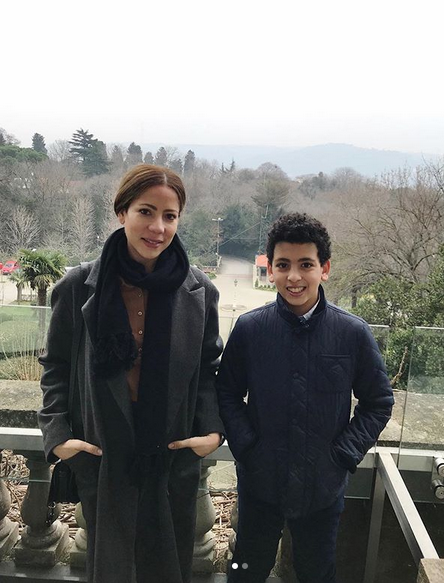In the wake of the reemerging wave of celebrity child sex abuse allegations, it is difficult as a parent not to be shaken. The people who were the juvenile victims of stars such as R. Kelly and the late Michael Jackson are refusing to stay silent and have bravely been coming forward with their stories. Hoora to Oprah and HBO for giving these two men who allegedly were sexually assaulted by Michael Jackson a platform. It is only human to put yourself in various perspectives of those situations. Questions like, “What would I have done if I were the victim?”, “Could someone have stopped this?”, And eventually “What would I do someone abused my child? How would I even know?” start to come up. While it is impossible to create total protection for your child 100% of the time without isolating them and completely removing them from society altogether, there are things you can do to help prevent abuse in your child’s life and to help keep them from engaging in abusive relationships. Ways to protect your child from an abuser.

Start The Conversation Earlier Than Sooner
I started having this conversation with my son since he was two. It’s sad that parents need to do this, but it could be the difference between abuse that goes unreported and otherwise. Explain to your child what is a comfortable, appropriate touch and when it is inappropriate. It’s important to be specific about their body parts and why no one should touch them in those private parts. It’s also important to tell your child that whenever he/she feels uncomfortable or unsafe always to tell the parents or an adult immediately. I always tell my son ” You can tell me anything, I will always protect you” This will make them feel they can trust you and not be afraid of the abuser.
One of the most important conversations that you can have with your children is about their rights. One of the many reasons that abuse can go unreported or ignored is because children don’t know when an authority figure has broken the rules or who to talk to about it, which gives predators (particularly those in positions of power) a manipulative advantage. Arming children with knowledge will help avoid confusion and help them more readily recognize danger from the very beginning. They should know that there should never be a secret between children and adults.
Never Push Your Child To Be Affectionate if they are not Comfortable
You may have a distant family member whom you love very much, but remember that that same family member may be a stranger to your child if he hasn’t been around him/her too much. You may feel the urge to show that loved one how much you love him/her through your child as well, but that eventually may send your child a confusing message. Kids should never feel that uncomfortable physical affection is ok. They don’t know the difference between a safe touch and an unsafe one. Until they do, let them get comfortable around that new family member at their own terms.
Sorry, No Sleepover
I know it sounds extreme, but my son is ten years old, and he’s never been to a sleepover, with the exception of sleeping at his grandparents. Let your child stay over only at close family members, those you know you can trust because they’ve been in your life since childhood and you know how they behaved around you as a child. ” The vast majority of the time someone who molests a child is known to the family. Beware of so-called “grooming behaviors.” This is usually from an adult male (or female) who ingratiates themselves to the child and family to lower their defenses. Usually, they will try to establish a trusting relationship with the family and seek opportunities to be alone with kids. They do this so that any accusations from the child will seem made up. This has happened in almost every situation I have seen.” Dr. Tobi Adeyeye Amosun.
For older kids like teenagers, keep track of where your child is, who they are with, and how long they are planning to be gone. It is also a good idea for you to become familiar with any new people in your children’s social groups as soon as you can so that you can get a sense for whether it is an appropriate relationship for your child to be involved in.
Stay Involved
The more time that you can spend around your children the easier it will be to pick up on any of the signs of abuse whether they are physical or behavioral. Staying actively involved in your child’s life also gives you the opportunity to have honest and open conversations about facts and research surrounding abuse and get their perspective on abuse issues happening in current culture. Finding out what your child knows and understanding how they think is a vital part of making sure they know how to recognize risky situations, identify abuse and respond safely and appropriately.
Create a Watch and Support Network
“It takes a village” is a saying for a reason. There are times that are children inevitably have to be away from us. Adult family and friend relationships are extremely important in helping to avoid abuse simply because your child has a trustworthy network of supportive adults. The more eyes that are on any given situation, the quicker things that are out of the ordinary can be spotted, and the faster risky situations can be identified and dealt with. It also helps to get multiple perspectives on complicated parenting issues that aren’t entirely so black and white. Healthy adult relationships with family, friends and authority figures like teachers and coaches can also help them understand what an appropriate relationship looks like between children and adults, couples, friends and family members. If they have a solid grasp of what is acceptable and appropriate they will better be able to detect when something is suspicious or out of the ordinary in their own relationships with people.
There are no words to describe the tragedy of child abuse in any of its forms. Children deserve the support and safety to grow up without the risk of being preyed on. But until we reach a point where we can provide that for them, it is important that we stay alert, engaged and supportive of those in our communities and families so that we can all worry just a tiny bit less.
Sources:
https://www.apa.org/pi/families/resources/understanding-child-abuse




